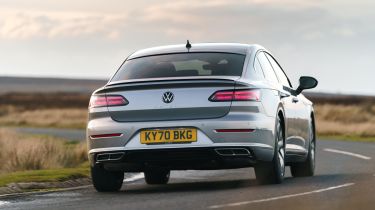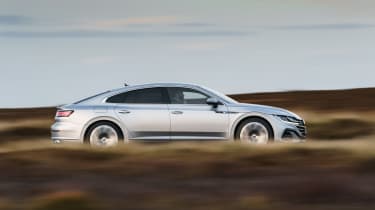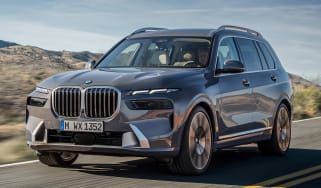Volkswagen Arteon (2017-2024) - MPG, CO2 and running costs
Good value prices and efficient engines mean the Arteon shouldn’t provide any running cost shocks

Just so you know, this is an older review of the 2017-2024 Volkswagen Arteon. If you are interested in information about a used Volkswagen Arteon, or news about the latest Volkswagen models, please follow the links provided.
With prices starting from around £41,000, the Arteon is priced to compete with rivals from Audi and BMW, especially considering that all Arteons are equipped with standard kit that’s usually optional on rivals. With all Arteons now costing over the £40,000 barrier, they will be subject to the £390 tax supplement for years two to six.
The 1.4-litre TSI eHybrid is the most efficient model in the Arteon range. It’s able to travel up to 37 miles on electric power alone and has a combined fuel economy figure of 243.3mpg – with the obvious caveat being that you need to ensure the battery is plugged in regularly to get anywhere near that figure. With CO2 levels of 26g/km, company car users are only liable for a Benefit-in-Kind (BiK) tax rate of 12 per cent.
After the Plug-in hybrid, the 2.0-litre diesel is the most economical alternative. The 148bhp variant returns up to 55.9mpg, with CO2 emissions of 132g/km. The 197bhp diesel incurs a slight penalty for its extra performance with 51.6mpg and 143g/km. If you opt for the 4MOTION four-wheel drive system, this engine will suffer a further performance penalty, resulting in 47.1mpg and 157g/km.
Buyers after the hot R model probably won't be prioritising overall efficiency, which is just as well, seeing as it's only capable of 32.2mpg on the combined cycle and emits 199g/km of CO2.
Insurance groups
The insurance groupings for the Volkswagen Arteon range from group 22E for the 148bhp petrol, up to group 35E for the hot R variant. The letter E means the Arteon exceeds the minimum security requirement for its class, which has qualified it for a lower insurance group.
Depreciation
Like any big executive car, the Volkswagen Arteon’s depreciation figures will likely hit the wallet quite hard. Our data suggests that, on average, the Arteon should retain between 39.60 and 46.47 per cent of its original list price after three years and 36,000 miles of ownership. This applies to both the saloon and Shooting Brake variants.
To get an accurate valuation for a specific model, check out our free car valuation tool...









